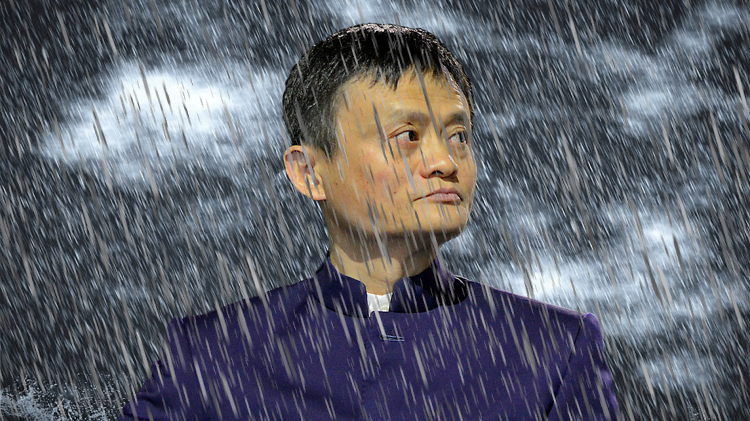
With Jack Ma disappeared and Alibaba and Ant Group possibly nationalised, China's government is dictating its future.
A bit like my What’s happening in Hong Kong blog – the most read one of 2020 – I now have a Where’s Jack Ma blog. I’m tracking and reading lots online about his disappearance, with many saying he hasn’t disappeared. He’s just sitting at home under government surveillance, like Julian Assange at the Ecuadorian Embassy.
It is weird times, and it is particularly weird that Jack Ma disappeared as the Ant Group IPO hit the news. Jack made a speech in late October 2020 and then President Xi personally intervened and cancelled the Ant Group IPO. At the time, I said that Jack messed up, as maybe he shouldn’t have been so openly critical of the Chinese financial regulators but now, two months later, I wonder,as does The Financial Times:
Among the many features of Jack Ma’s speech to the Bund Summit last October — a calamitous address that criticised regulators and accused China’s state-owned banks of having a “pawnshop mentality” — three now stand out. The first is that the Alibaba founder read his critique from sheets of paper. The second, based on the protracted share-price mauling that followed, is that the 20-minute speech cost the company roughly $12.8bn of market value for every 60 seconds of oratory. The third is that the October 24 event was the last time anyone saw China’s most famous businessman in public.
The fact that we are all talking about Where’s Jack is an embarrassment for China overseas. It feels like America taking on Jeff Bezos and sending him to Guantanamo Bay for some waterboarding. OK, OK, I’m being extreme, but what is happening to Jack? I've asked a few friends in China and they have no idea and, for me, it’s a hugely public issue and a hugely public embarrassment. Who is more important? Chinese entrepreneurialism or the PRC? Obviously, it’s the latter, but a move to silence Jack or jail him? Well, that speaks volumes.
What it says is that China is not open for business. It’s not open for World Trade. It’s not open for cross-border commerce. Or, in other words, it’s still a closed and controlled old economy that has no respect for freedom and trade and is uninvestible.
Add the idea onto this that China will take over Alibaba and Ant Group and nationalise them, and you can see how mad things are now.
Then add Brexit and Donald Trump to the mix, and it worries me. We were seriously commercialising and globalising in the 2000s; in the 2010s, we were soul-searching and moralising; then the pandemic hit in 2020 and it looks like the 2020s will be internalising and localising.
Global and globalisation has gone. The 2008 financial crisis saw the universal banking model die and the last decade has seen the global structures crumble. But then, I look through my other lens, and see the platforms.
The platforms are internet structures that are global and that cannot be localised and internalised. And this is where the struggle between President Xi and Jack Ma hits the street. Can China stop their internet engines from becoming too powerful and too strong? They can try, and they can target the individuals involved, but maybe the horse has bolted out of the barn and it’s too late to close the gate.
A wee bit like the struggles America is having in dealing with Mark Zuckerberg and his brethren: how do you stop a global platform that everyone is using and likes?
Add on to this that there are other horses out there in the wild, like bitcoin, and you have to ask this key question: can governments stop platforms?
Returning to Jack Ma, I always remember this comment he made at the Alibaba conference I attended in 2017:
Management. The word is for regular companies. At Alibaba we treat it more like governing an economy, as we have to manage so many companies dependent upon us as partners. By 2036 we will have built an economy that can support 100 million businesses for billions of users. We won’t own that economy. We will just govern it.
Ahhhh … no wonder he is locked down under government surveillance and at loggerheads with the PRC. I shall continue to watch this space and just hope that Jack is doing well and not suffering the Assange blues or worse.
Chris M Skinner
Chris Skinner is best known as an independent commentator on the financial markets through his blog, TheFinanser.com, as author of the bestselling book Digital Bank, and Chair of the European networking forum the Financial Services Club. He has been voted one of the most influential people in banking by The Financial Brand (as well as one of the best blogs), a FinTech Titan (Next Bank), one of the Fintech Leaders you need to follow (City AM, Deluxe and Jax Finance), as well as one of the Top 40 most influential people in financial technology by the Wall Street Journal's Financial News. To learn more click here...

